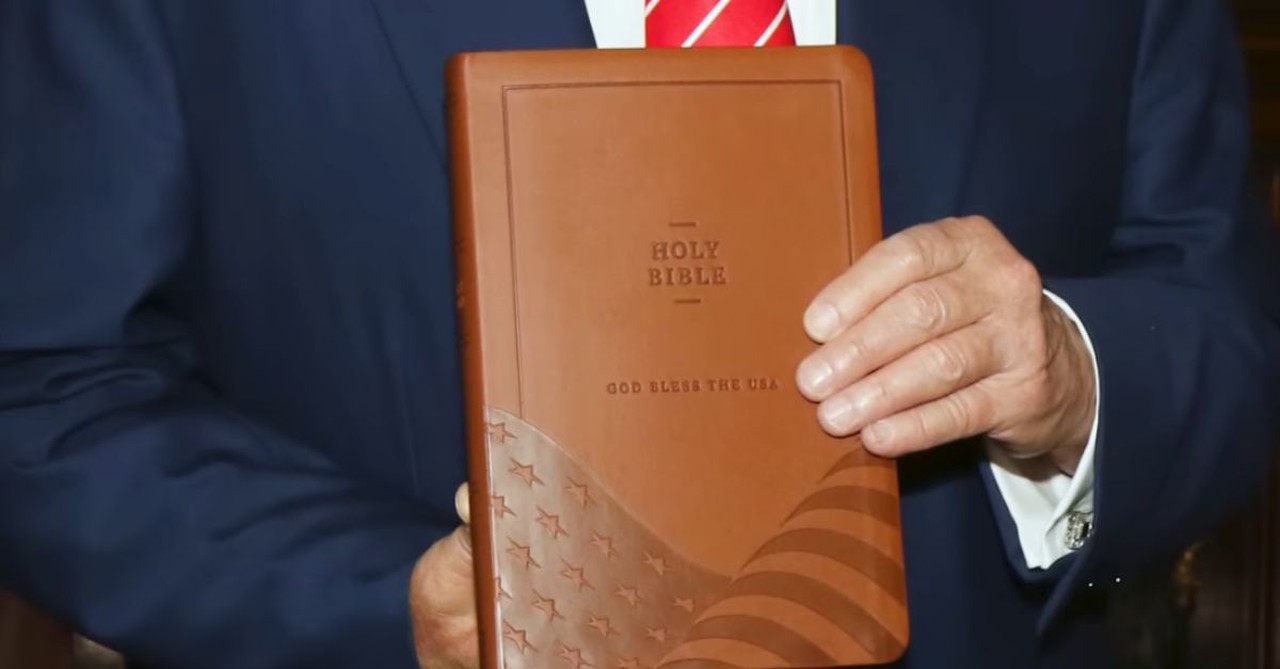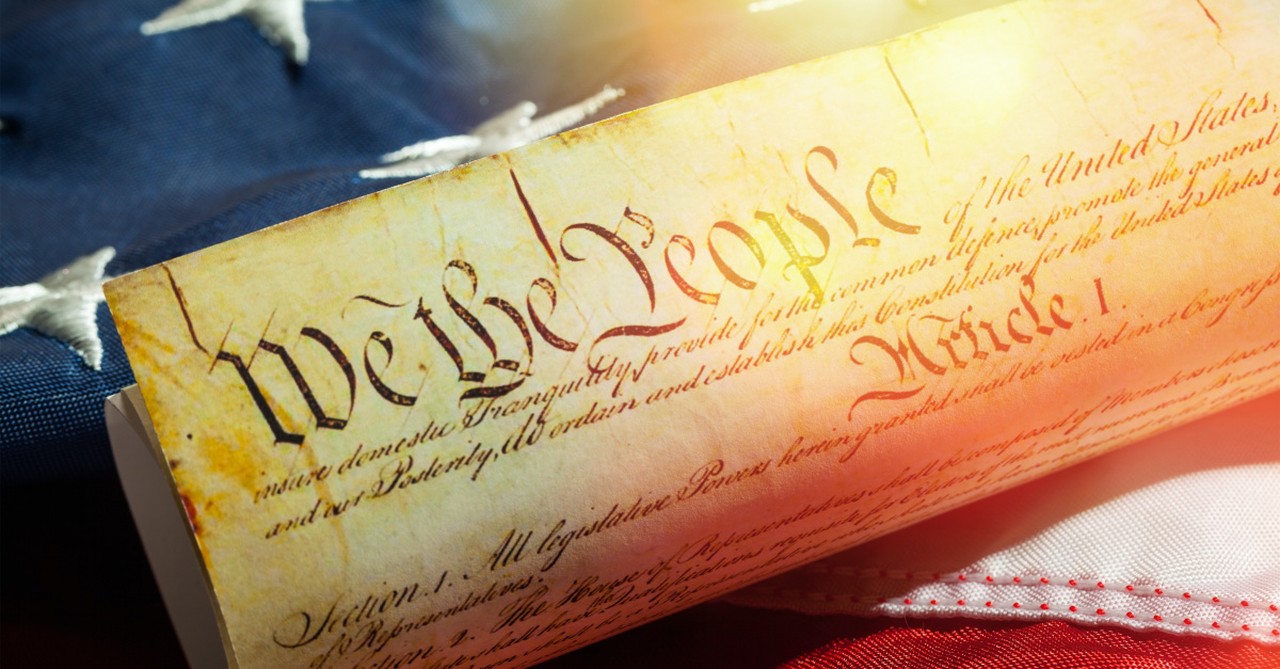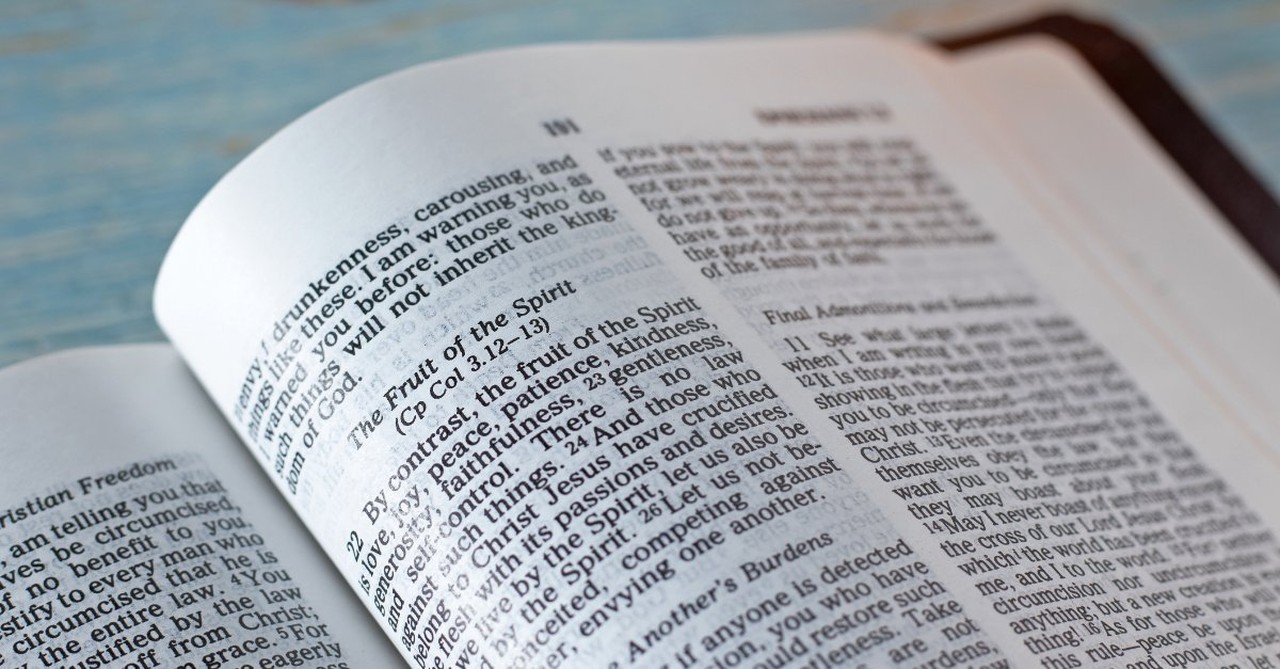
Cultural Christianity may be one of the thorniest issues facing the Church in the United States. In part, cultural Christianity is problematic because Christian culture points society toward a moral life informed by the Bible. Unfortunately, Christian culture falls short of Christianity because Christianity seeks to make disciples of Christ who recognize the authority of Christ. To put it differently, “Christian culture” still rejects Christ and, as such, is unworthy of being described as “Christian.”
Trump’s “God Bless the USA Bible” is a product of the Christian culture of the United States. What does that mean?
First, it means that there are underlying cultural and historical reasons that Trump did not release a “God Bless the USA” Veda (the sacred texts of Hinduism), the Quran (the sacred text of Islam), or even the Book of Mormon. The predominantly Protestant makeup of the United States at its founding continues to exert a degree of influence on the way many people think about the United States. A Bible, regardless of one’s religious affiliation, fits into the story of the United States in ways that other sacred books simply don’t. There is, in some circles, a sentimentality around the Bible even when the Bible is not viewed as the final authority for life and faith.
Second, to suggest that Trump’s “God Bless the USA Bible” is a product of the United States’ Christian culture means that the Bible is often used to reinforce American ideologies rather than challenge them. There is a relatively common conception that America was founded as a Christian nation. Though it seems to be the case that Christianity and the biblical writings influenced certain aspects of the United States, Christ is not essential to the United States. As such, as I have argued in Serpents and Doves, “Christian” should not be used to describe our nation (or any other nation). It seems to me that the phrase “Christian nation” blurs the distinction between the Church and the governing authorities.
Tying the Bible to the United States in an uncritical manner is problematic.
When thinking about Trump’s “God Bless the USA Bible,” there are five major points everyone needs to know.
Photo Credit: YouTube/Lee Greenwood/God Bless the USA Bible
1. Trump’s “God Bless the USA Bible” Is Not the First of its Kind

1. Trump’s “God Bless the USA Bible” Is Not the First of its Kind
SLIDE 1 OF 5
In 2009, The American Patriot’s Bible was released from Thomas Nelson Publishers. The Bible included various images from our nation’s history, as well as a section on “the seven principles of the Judeo-Christian Ethic” and various other patriotic pieces, such as the text of “The Battle Hymn of the Republic.”
David Barton’s The Founders’ Bible also brings the biblical text together with a particular American ideology. For instance, at one point in The Founders’ Bible, Barton notes, “The accomplishments of both America and the Bible are unmatched but not unrelated, for the Bible was the key factor in America’s success—a fact largely unknown today, but widely acknowledged by national leaders throughout American history.”
Trump’s “God Bless the USA Bible” is, in many ways, a softer version of The American Patriot’s Bible and The Founders’ Bible. In any case, the Trump Bible is not the first to tie the biblical text into America’s history.
The fact that this idea was not original to Trump is significant because it demonstrates that much of Trump’s rhetoric concerning a Christian America stems from pre-existing streams of thought within the church. God’s people were, to some degree, already blurring the lines between cultural Christianity and orthodox Christianity. The former tends to see America’s systems and political ideas as a relatively pristine outgrowth of Christian ideas rather than recognizing the way they tend to distort Christian ideas. For example, while capitalism has tended to have certain good effects on the world, it has also cultivated consumerist tendencies that are less than beneficial to humankind. It isn’t that some other system (e.g., socialism) would be better, but that all systems will tend to have good effects and negative consequences. They are not unqualified “goods.”
Photo Credit: ©Getty Images/Brandon Bell/Staff
2. Trump’s Bible Includes 5 American Documents in Addition to the Biblical Text.

2. Trump’s Bible Includes 5 American Documents in Addition to the Biblical Text.
SLIDE 2 OF 5
First, let me say that I don’t think there is anything wrong with including non-canonical material alongside the canonical biblical text. Study Bibles of various sorts often include modern commentary, notes, and other information to help readers better understand the biblical text. Including additions to the biblical text that help readers understand the Bible’s various narratives seems appropriate to the purpose of the biblical text itself (i.e., the transformation of those who read it).
Trump’s Bible does not include a commentary or study notes. Instead, the following documents are provided at the end of the Bible:
- The chorus of “God Bless the USA”
- The U.S. Constitution
- The Bill of Rights
- The Declaration of Independence
- The Pledge of Allegiance
The inclusion of these texts with no further comment leaves the purpose for their inclusion somewhat ambiguous (especially when compared to The American Patriot’s Bible and The Founders’ Bible). Still, it is safe to say that they are not included to aid readers in understanding the biblical text. Instead, given the videos on godblesstheusabible.com, it would seem that the documents are included for the sake of the nation. As Trump notes, “Get a copy of the ‘God Bless the USA Bible’ now and help spread our Christian values with others. There you have it. Let’s make America Pray again.”
The Declaration of Independence, Bill of Rights, and US Constitution are founding documents that have served the United States well. However, including them with the biblical text tends to play into narratives related to American civil religion rather than to Christianity. There is a sense in which their inclusion in the “God Bless the USA Bible” could be understood less as an appropriate reminder to pray for our nation and more as the presumption that we understand why God has blessed the USA in the first place.
The views expressed in this video do not necessarily reflect those of the Salem Web Network.
Photo Credit: Getty Images/Artisteer
3. The Trump Bible Includes the Full Text of the King James Version

3. The Trump Bible Includes the Full Text of the King James Version
SLIDE 3 OF 5
The “God Bless the USA Bible” did not have the easiest road to publication. While HarperCollins was initially associated with the project, they eventually declined to publish the Bible or to authorize the use of the NIV for the project. Because the KJV has no copyright restrictions in the United States, the “God Bless the USA Bible” team pivoted to it as the preferred translation.
It isn’t clear why HarperCollins passed on the “God Bless the USA Bible” project. Though many speculate that public outcry against the project influenced the decisions, the statements made by HarperCollins suggest otherwise. I won’t pretend to understand the publishing world, but I assume that there are a multiplicity of factors involved in choosing a project to publish. Whatever the reasons, the Trump Bible is now available with a traditional translation of the biblical text.
As a brief aside on the KJV, it is important to note the different manuscript strategies used for the KJV and for more modern translations like the NASB, ESV, and NIV. The KJV uses a majority manuscripts strategy when evaluating variants in original language sources, whereas the other translations noted use the critical strategy. The majority strategy of the KJV gives preference to the variant in the majority of manuscripts regardless of other factors (e.g., date of manuscripts, etc.). The critical strategy is based on earlier and more reliable manuscripts regardless of how many manuscripts may be available. The strategies yield relatively minor differences at various points, though the KJV and modern translations are largely in agreement.
Photo Credit: Getty/Marinela Malcheva
4. The Trump Bible Is Available in Multiple Editions

4. The Trump Bible Is Available in Multiple Editions
SLIDE 4 OF 5
All the editions have largely the same content. You can now purchase a version embossed with an inscription about God’s intervention in Trump’s assassination on July 13, 2024. Both the embossed and regular versions are $59.99. You can also opt for the “Signature Edition.” The price goes up a bit for a copy signed by President Trump. The cost of the Signature Edition is $1,000. It should be noted that you can purchase a comparable KJV translation with large print on amazon.com for under $15.
Photo Credit: ©Getty Images/Win McNamee/Staff
5. The Trump Bible Has Been Sucked into Controversies Regarding the Use of the Bible in Oklahoma Classrooms.

5. The Trump Bible Has Been Sucked into Controversies Regarding the Use of the Bible in Oklahoma Classrooms.
SLIDE 5 OF 5
In June 2024, Ryan Walters, Oklahoma State Superintendent, released a memo mandating the use of the Bible in Oklahoma classrooms and to have a Bible in every classroom. While it isn’t clear that he has the legal authority to require the use of the Bible, bid documents have surfaced outlining Oklahoma’s requirements for an order of 55,000 Bibles. The bid notes, “The supplier must provide only the King James Version Bible for historical accuracy and contain both the Old and New Testaments…[and] must include copies of The United States Pledge of Allegiance, the U. S. Declaration of Independence, The U. S. Constitution, and The U. S. Bill of Rights.”
The God Bless the USA Bible, and the We the People Bible are the only two Bibles that appear to meet the requirements of the Oklahoma bid. Both Bibles have been endorsed by Trump, with the God Bless the USA Bible being deeply associated with Trump. While some have suggested collusion, it seems likely that the alignment between the Oklahoma bid and the Trump-endorsed Bibles emerges from political synergies.
Trump’s “God Bless the USA Bible” is, in my opinion, a misguided endeavor. Even if one believes that America is a Christian nation, combining the Bible with America’s founding documents should surely give any Christian pause. At the very least, we need to consider the unintended symbolic statement made by including these documents alongside the biblical text.
Photo Credit: Mche Lee/Unsplash


Originally published October 29, 2024.







